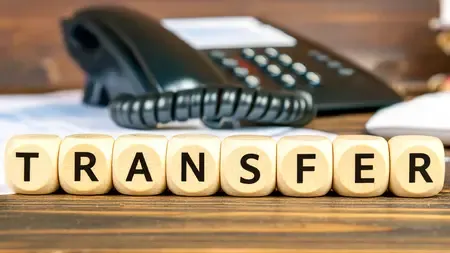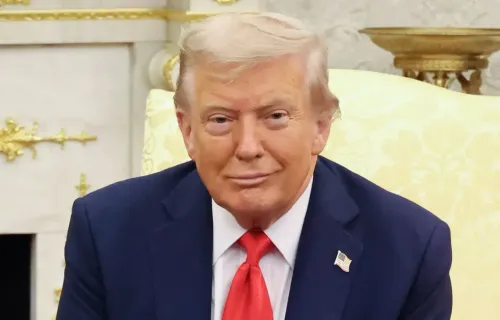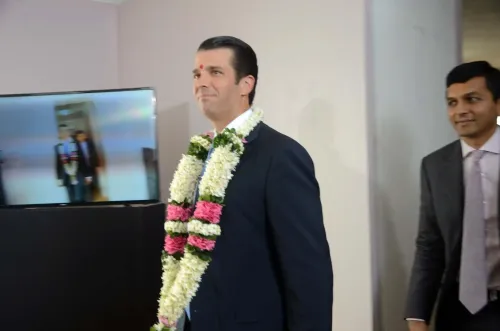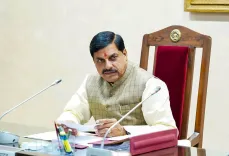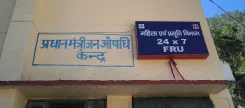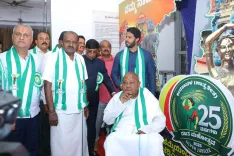Will Nuclear Blackmail Hinder India's Anti-Terror Actions?
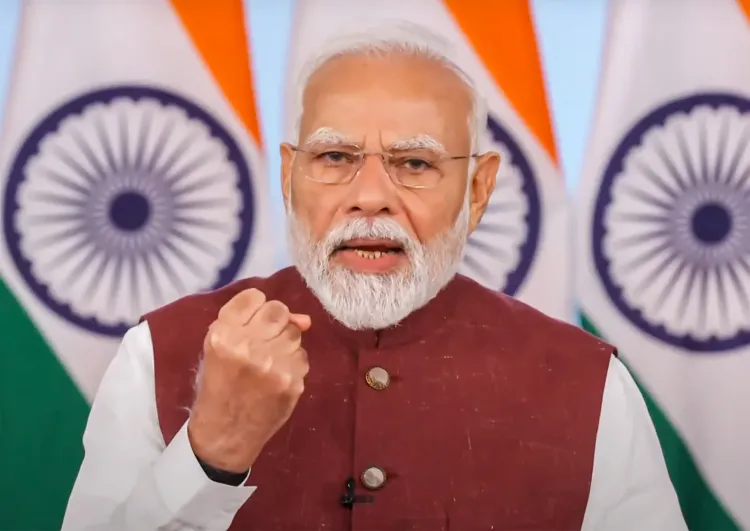
Synopsis
Key Takeaways
- Nuclear blackmail will not deter India's anti-terror efforts.
- Operation Sindoor marks a new chapter in military action against terrorism.
- India is committed to pursuing terrorists globally.
- Government-supported terrorists are treated as equals to their mentors.
- Negotiations with Pakistan are restricted to terror and Kashmir discussions.
New Delhi, May 12 (NationPress) Nuclear blackmail will not deter India’s determination to combat terrorism decisively across the globe, stated Prime Minister Narendra Modi on Monday, delivering a compelling message to the international community amid ‘Operation Sindoor’.
In his inaugural speech to the nation following a ceasefire agreement with Pakistan and the initiation of Operation Sindoor, PM Modi highlighted that military measures targeting terror hubs in the neighboring nation have established a new paradigm in India's robust three-part anti-terror strategy.
This new framework emphasizes India’s unwavering commitment to pursue terrorists worldwide, ensuring a strong response to any threats against its citizens, he articulated.
“The second aspect of this new doctrine is that India will not permit any terrorist supporter to use nuclear threats to evade our retaliation in response to a terror attack,” he asserted.
PM Modi further emphasized that within India's updated anti-terror strategy, state-sponsored terrorist operatives will be regarded equally as their mentors.
Reaffirming India’s resolve to respond decisively to terrorism, regardless of nuclear intimidation, the Prime Minister stated that we are not in an ‘era of terror’ nor an ‘era of war’.
In a special video message to the nation at 8 p.m. on Monday, PM Modi issued a stern caution to Pakistan, declaring: “Terror and dialogue, terror and commerce, as well as water and blood cannot coexist. Negotiations with Pakistan will focus solely on terrorism and Kashmir.”
He paid tribute to the armed forces, noting that the government can make decisive choices due to its “Nation First” policy.
Warning that Pakistan will ultimately be undermined by its own terror apparatus, the Prime Minister remarked, "We targeted terror hubs in the very heart of that nation and dismantled its defense facilities when it chose to attack us instead of joining our fight against terror, which led to the elimination of 100 terrorists."
Earlier in the day, PM Modi presided over a high-level meeting with key government officials, including Defence Minister Rajnath Singh, External Affairs Minister S. Jaishankar, and NSA Ajit Doval, to evaluate the outcomes of Operation Sindoor, during which 100 terrorists were neutralized by the armed forces.
This meeting took place at the Prime Minister's residence in the capital. Defence Minister Rajnath Singh, Chief of Defence Staff General Anil Chauhan, and all three service chiefs—General Upendra Dwivedi, Admiral Dinesh K. Tripathi, and Air Chief Marshal Amar Preet Singh—were present at this gathering.

